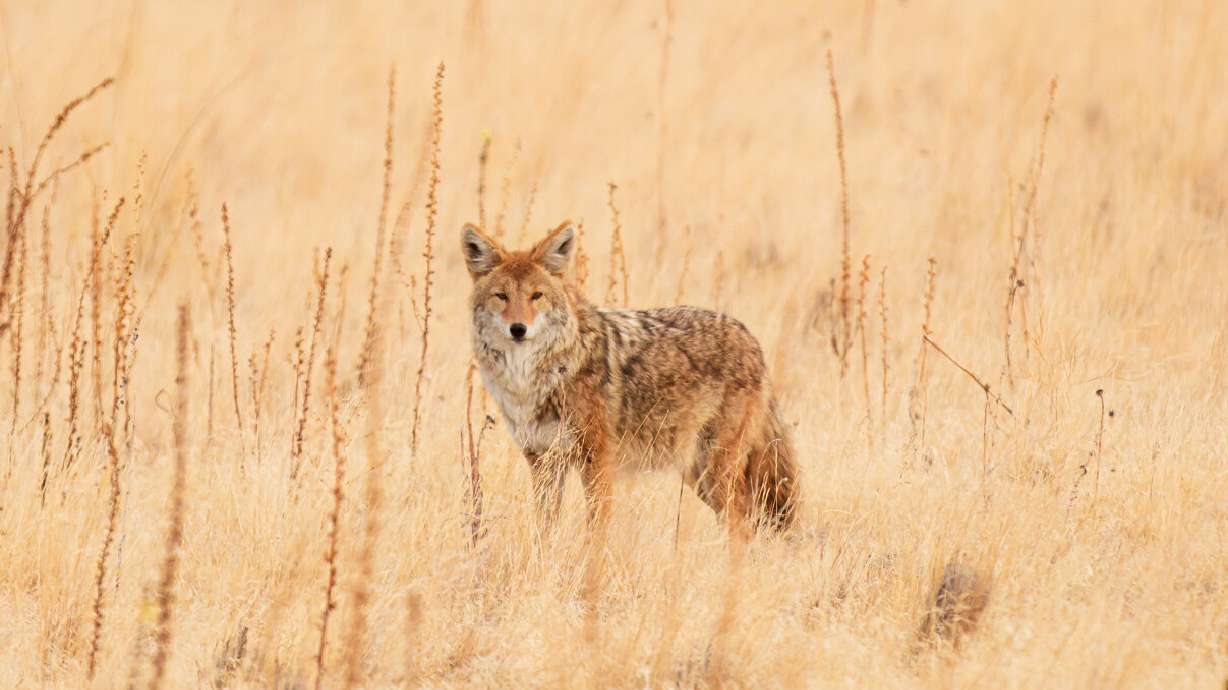Estimated read time: 3-4 minutes
This archived news story is available only for your personal, non-commercial use. Information in the story may be outdated or superseded by additional information. Reading or replaying the story in its archived form does not constitute a republication of the story.
SALT LAKE CITY — State wildlife authorities a few weeks ago were forced to euthanize a coyote in Beaver County that someone had kept as a pet illegally after the animal bit a child in that person's neighborhood.
The child was OK but the incident served as just one example of an uptick in reports of people taking home wildlife and trying to raise them as pets. The recent incidents, such as the case in Beaver County, are why state wildlife officials want to remind Utahns that keeping wild animals as pets is not only dangerous but also illegal.
Faith Heaton Jolley, a spokesperson for the Utah Division of Wildlife Resources, said there was another recent case involving pet raccoons kept near Vernal that were removed from a home. In late 2019, a 5-year-old boy in Uintah County was scratched by someone else's pet raccoon severly enough that he eventually underwent surgery.
Jolley explained that this issue seems to pop up annually, especially during this point of the year when young animals are out in the wild. Some take home newborn fawns or baby raccoons they've found in nature that they believe are on their own, even though the animal's mother is nearby in most cases.
"A lot of people often think that they're helpless or they're abandoned or something, so they want to take them in. But that's rarely the case," she said.
Illegal possession of wild animals is typically a class B misdemeanor and unpermitted pets can be seized by either the DWR, Utah Department of Health, Utah Department of Agriculture and Food, or local law and code enforcement.
State wildlife biologists also warn that wild animals can carry diseases, viruses and parasites that can cause severe health issues and can also be lethal to humans in some cases.
"It's important to protect the health, welfare and safety of the public, as well as wildlife," added DWR law enforcement Capt. Wyatt Bubak in a statement Monday. "These animals are wild and should be treated as such, even when they are babies."
The DWR oversees the protection of deer, cottontail rabbits, bears, cougars and some birds that people can harvest through hunting permits but cannot legally own. Other species like raccoons, skunks, coyotes, squirrels, gophers, jackrabbits, muskrats and field mice aren't protected in the same way, but state law prohibits keeping them without a proper permit.
The agency also lists alligators, caimen, cobras, desert tortoise (taken from the wild), gaboon viper, Great Basin rattlesnakes, North Pacific rattlesnakes, puff adders, Uracoan rattlesnakes and western diamondbackas as species people can't just take from the wild, either.
Jolley said anyone who comes across a wild animal they believe may be abandoned, sick or injured should instead call a local DWR office. The agency's offices are:
- Salt Lake City (1594 W. North Temple): 801-538-4700
- Cedar City (1470 N. Airport Road): 435-865-6100
- Ogden (515 E. 5300 South): 801-476-2740
- Price (319 N. Carbonville Road): 435-613-3700
- Springville (1115 N. Main Street): 801-491-5678
- Vernal (318 N. Vernal Ave.): 435-781-9453
"Let the professionals handle it. Our staff is trained. They can come out and assess the situation, relocate the animal to a better habitat away from people where it's not going to get injured," she said.
"The worst thing someone can do is try to take matters into their own hands, because we've got a lot of well-meaning people who want to help the wildlife and they think they're helping the wildlife. But when they take in wildlife and they try to feed it ... a lot of times they do more harm than good."










